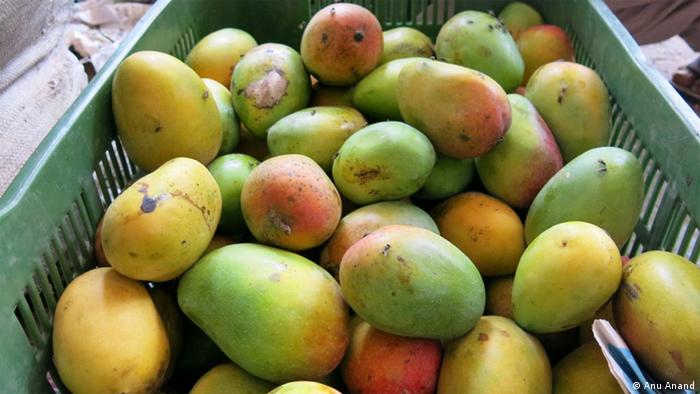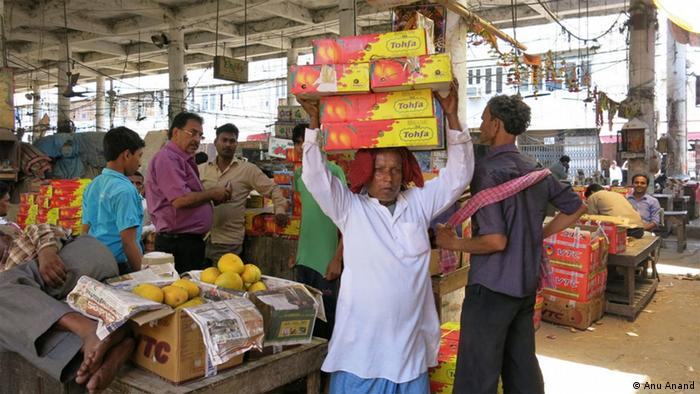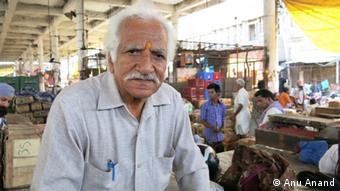Welcome
....to JusticeGhana Group

JusticeGhana is a Non-Governmental [and-not-for- profit] Organization (NGO) with a strong belief in Justice, Security and Progress....” More Details
EU's Indian mango ban to counter pests
- Details
- Category: Development
- Created on Friday, 13 June 2014 00:00
- Hits: 5709
 EU's Indian mango ban to counter pests
EU's Indian mango ban to counter pests
Indian Alphonso mangos, with their buttery texture and sweet taste, are the most sought-after variety. But an EU import ban will make for a less sweet summer - for European mango consumers, and Indian exporters.
India's scorching summer heat with temperatures soaring to 45 degrees Celsius (113 degrees Fahrenheit) offers few pleasures. The most gratifying one is gorging on sweet, succulent mangos, which are in season between April and July.
In India's capital of New Delhi, hawkers on bicycles or pushing carts piled high with the green and yellow fruit call out to customers early each morning to come buy the delicious fruit.
But it's not just Indians who get excited when it's Alphonso mango season in India. Across the world, lovers of the Alphonso mango - which only grows in western India - look forward to the annual ritual of sucking out the stringy orange pulp, licking the juice off their hands, or daintily scooping out the flesh with a spoon.
"The Indian Alphonso mango is the champagne of mangos," said Pushpesh Pant, a food anthropologist based in New Delhi. "I've had mangos from Thailand, Indonesia and Brazil, but they don't bear mentioning in the same breath."
India tops list of pest-exporting nations
 But this ritual might soon be over - at least for Europeans. In May, the European Union banned the import of all mangos as well as four vegetables from India, because last year pests were discovered in at least 207 consignments of produce.
But this ritual might soon be over - at least for Europeans. In May, the European Union banned the import of all mangos as well as four vegetables from India, because last year pests were discovered in at least 207 consignments of produce.
EU inspectors found fruit flies and tobacco white flies in the infested shipments. Neither is harmful to humans, but both pose a serious threat to European tomato and salad crops, which are worth hundreds of millions of dollars annually.
Despite warning India of the problems, officials say the number of infested shipments kept rising in 2013, and a ban became necessary.
"India is not being singled out," said Dan Rogerson, the United Kingdom's parliamentary undersecretary of state for water, forestry, rural affairs and resource management in a debate on May 8.
Rogerson said India has topped the list of pest-infested imports for years, adding that this could impact the UK's own export status - the country's glasshouse exports alone are worth 320 million pounds ($536 million, or 392 million euros) annually.
Rogerson said when European Commission representatives had visited India in 2010 and 2013, they found the system of export controls failed to meet international standards. Indian businesses and government, he said, need to sort this out.

No certified mango exports in New Delhi yet
At Azadpur Mandi - India's biggest wholesale fruit and vegetable market, on the outskirts of New Delhi - swarms of flies settle on boxes of mangos as suppliers sort, weigh and pack them for customers at home and abroad. There are few cold storage facilities, no inspectors and no standardized pest control.
India has roughly 300 government-approved warehouses for certifying exports, but none in New Delhi. Only one facility in all of northern India certifies mango exports - but it is located in the town of Saharanpur, 170 kilmeters (105 miles) away, according to an official at India's Agricultural and Processed Food Products Export Development Authority.
Indian officials say they have put measures in place to ensure quality exports, and that a blanket ban was unnecessary.
"We're a developing country and cannot possibly match the standards that are expected for all produce," said Alwyn Didar Singh, secretary general of the Federation of Indian Chambers of Commerce and Industry. The ban will cost Indian farmers and traders $17 million (12.5 million euros) in losses, he said, adding that the federation would have wanted to try and negotiate.
Forcing change
 Tilak Raj Arora, a New Delhi exporter, said he used to send an average of 3,000 kilograms of produce to Norway, Sweden and the UK before the ban.
Tilak Raj Arora, a New Delhi exporter, said he used to send an average of 3,000 kilograms of produce to Norway, Sweden and the UK before the ban.
"The ban means our money is tied up and our customers are angry," Arora said. "Of course it's been damaging. If we don't export, we don't earn anything."
While farmers and suppliers are cursing the EU ban, there is also evidence that it is forcing change.
On parched, treeless ground on the outskirts of New Delhi, mango supplier Sanjay Kumar Sethi shows off a new facility that he hopes will soon gain Indian government approval.
The nondescript, yellow-tiled building has been rodent-proofed and contains eight large, cold walk-in storage rooms, insect traps, toilets and an inspection room for government inspections.
If approved, this warehouse would be the first in New Delhi to certify produce for export, and would be one of many private facilities the government hopes to allow to open this year. Sethi thinks it will make a difference for quality.
Mango lovers in mourning
But European mango lovers won't be able to enjoy Indian mangos this season, as EU inspectors will return to India to reassess the ban only in September.
 Some in Britain, like Labour parliamentarian Keith Vaz, worked with Indian greengrocers to more quickly overturn the ban. Vaz even sent a box of Indian Alphonso mangos to Prime Minister David Cameron's office.
Some in Britain, like Labour parliamentarian Keith Vaz, worked with Indian greengrocers to more quickly overturn the ban. Vaz even sent a box of Indian Alphonso mangos to Prime Minister David Cameron's office.
"The United Kingdom is the mango's true home in the EU, as we are the largest importer of the fruit," Vaz told the Business Standard newspaper in India. In 2013 Brits consumed almost 5,000 tons of Indian mangos, he added.
However, the outlook is pretty sweet for Indian consumers - prices for premium mangos in western India have already decreased by nearly 30 percent.
"We are eating more Alphonsos for sure," said Rabani Garg, a New Delhi resident whose family consumes at least two kilos of mangoes daily. "The price doesn't really matter to us - we just love mangos and will always eat as many as we can."
Date 06.06.2014
Author Anu Anand, New Delhi / asb
Editor Sonya Diehn
Source: Deutsche Welle




